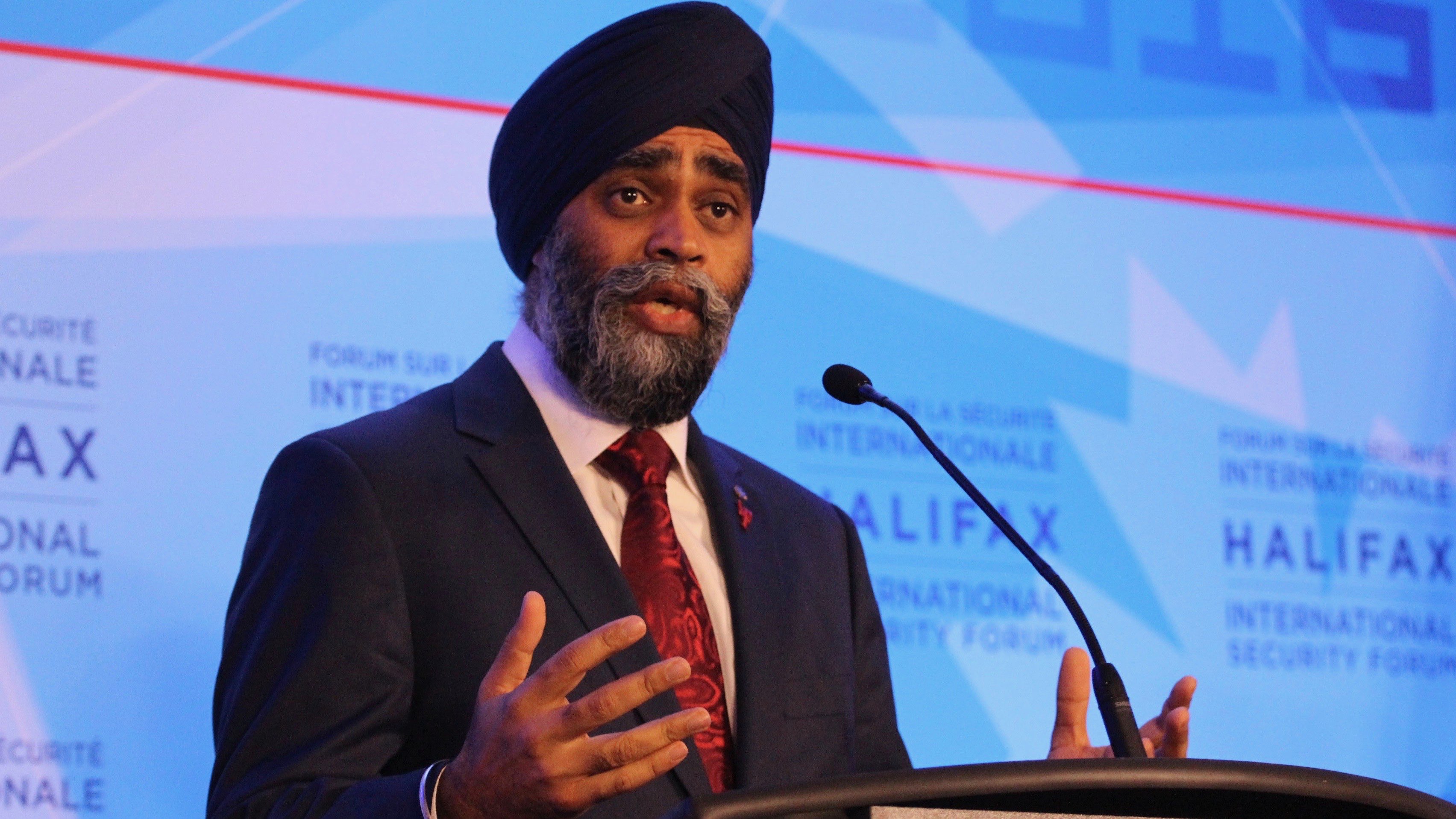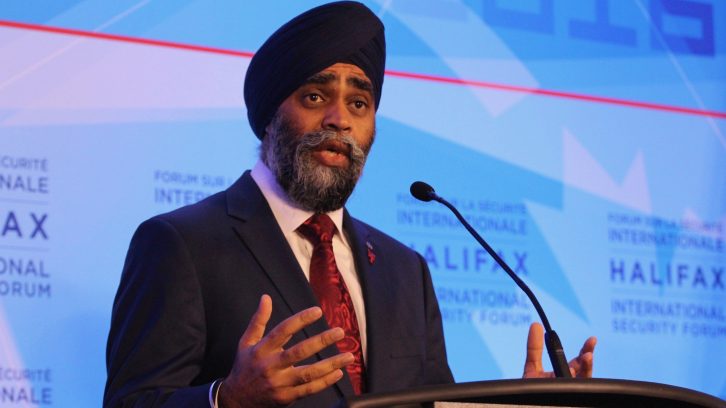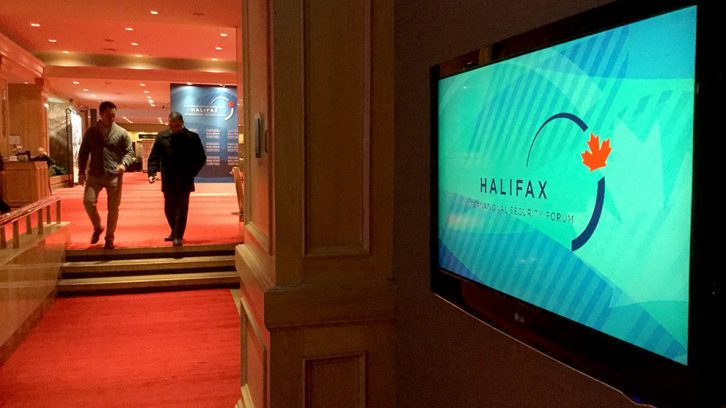Politics
What to expect from the 2017 Halifax International Security Forum
Participants will talk North Korean nuclear weapons and women in international security

caption
Harjit Singh Sajjan addresses the media Friday morning at last year's conference.
caption
Defence Minister Harjit Singh Sajjan at last year’s Halifax International Security Forum.Participants from 91 democratic countries are in Halifax this weekend for the Halifax International Security Forum (HISF).
From Friday to Sunday 300 people will gather at the Westin Nova Scotian, including prominent politicians, military officials, business leaders, journalists, academics and NGO workers from around the world. Canadian Defence Minister Harjit Sajjan will host the event.
Robin Shepherd, the senior adviser for HISF, said this year’s main discussion topics will be ISIS, Russia, the NATO alliance, North Korean nuclear arms and women in international security.
“This is a sort of conference that has a set of core values that we believe in, you know, liberal democracy, and that certainly does make it different from other conferences,” he said.
Attendees participate in on-the-record panels as well as smaller, off-the-record talks, which Shepherd says allows for more frank and productive dialogue.
“You can be sick to death of conferences and summits where diplomats just give the official line,” said Shepherd, who previously worked as the Moscow bureau chief for The Times of London. “It’s really refreshing to have the opportunity to really delve deep into issues and try to shift the terms of debate.”
Shepherd will moderate sessions featuring the Secretary General of NATO, the chief executive of the Islamic Republic of Afghanistan, and the executive chairman of Alphabet Inc., Google’s parent company.
‘All about jaw-jaw’
Since it began in 2009, the conference has hosted a number of high-profile keynote speakers. Last year, U.S. Senator John McCain was tipped off about a dossier that contained potentially incriminating links between president-elect Donald Trump and the Russian government.
Colin Robertson is a former Canadian diplomat and current vice president of the Canadian Global Affairs Institute—he has attended HISF multiple times and will again this year. He said the forum is about conflict prevention.
“I do think it’s something Canada has done that really makes a difference,” said Robertson. “As Churchill said, ‘it’s always better to jaw-jaw than war-war, and this is all about jaw-jaw.’”
Robertson suggests the big draw is access to other participants. He said the formal plenary sessions are interesting, but “almost incidental” to smaller bilateral meetings. In groups of 15-20, participants leave the Westin on Saturday night for dinners at restaurants around Halifax, he said. Those talks are off-the-record.
‘Not some innocent confab’
Allan Bezanson, spokesperson and organizer for the local activism group No Harbour for War, opposes what Bezanson calls “militarist solutions” to international security issues. The group is planning an “anti-war rally” for Saturday afternoon.
Bezanson does agree with Robertson on one point—participants come to HISF to talk to each other, informally.
“The important thing about these conferences is it gets these people together so they can mingle in the hallways and in the hospitality suites, and all that, and work out their plans,” said Bezanson.
While both Robertson and Shepherd point to this mingling as a productive and convivial feature of the forum, Bezanson considers it suspect.
“It’s not some innocent confab; it’s very serious,” he said.

caption
The HISF is held at the Westin Nova Scotian in downtown Halifax.Public and private sponsors
HISF was created in 2009 with funding from the Canadian government and the German Marshall Fund, a Washington, D.C.-based non-profit. The event was initially the “vision” of former Canadian defence minister and Nova Scotia MP, Peter MacKay, according to a 2015 media release.
In a phone interview, MacKay said he and HISF president Peter Van Praagh wanted to replicate similar forums from around the world.
“Among my various travels I had attended security forums in places like Munich and Brussels and Estonia and the Baltics, and these big international gatherings to me seemed like a very good forum to have discussions,” he said.
The Canadian government was a sponsor from the beginning, but MacKay wanted HISF to move away from that funding model.
“The intention was always that it would become completely independent of government funding, and more arms length,” he said.
According to their website, HISF became an independent non-profit organization in 2011. Today, it receives funding from public and private sponsors, including the Canadian Department of National Defence and Air Canada. This year, the federal government is providing $3.3 million to HISF.

